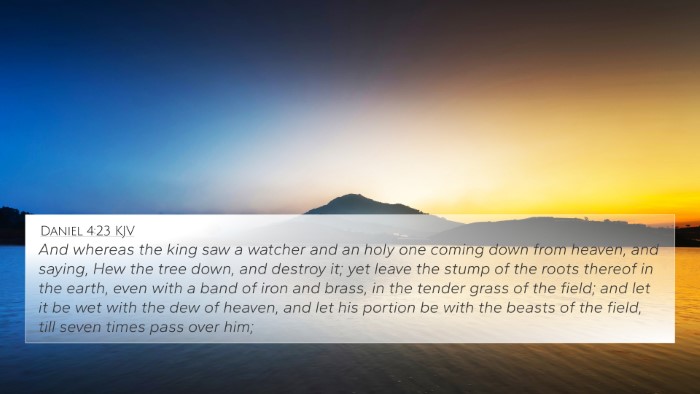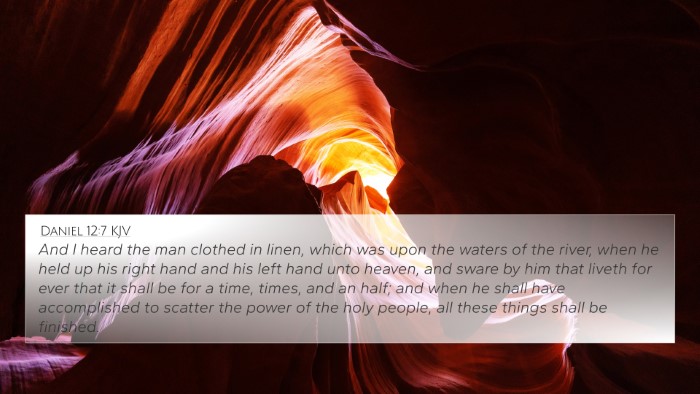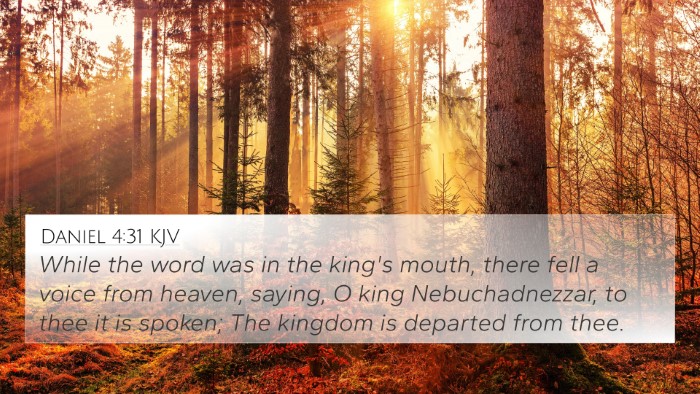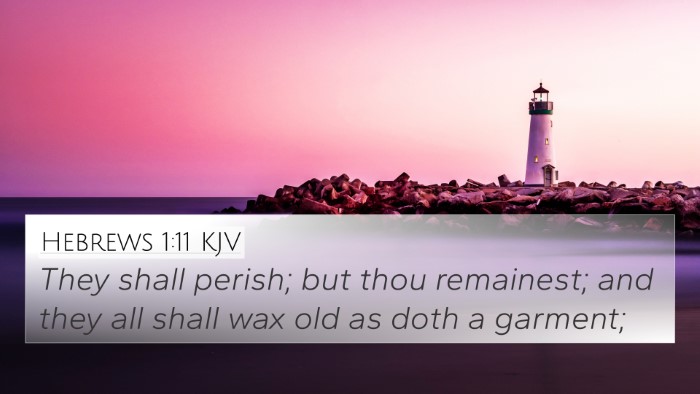Understanding Daniel 4:16
Daniel 4:16 states: "Let his heart be changed from man's, and let a beast's heart be given unto him; and let seven times pass over him."
This verse reflects a significant turning point in the narrative of King Nebuchadnezzar's life and is pivotal in understanding themes of humility, divine judgment, and restoration.
Context and Background
In the Book of Daniel, particularly in chapter 4, we witness the king of Babylon facing consequences for his pride and arrogance. This chapter contains an important message regarding the sovereignty of God and His power to humble those who are proud.
Commentary Insights
Various public domain commentators provide valuable insights into this verse, which are summarized below:
-
Matthew Henry's Commentary:
Henry emphasizes the transition from a man's heart to that of a beast, illustrating the severe consequences of Nebuchadnezzar's pride. His condition serves as a metaphor for how pride can degrade a person from their rational nature to a base state.
-
Albert Barnes' Notes:
Barnes points out the symbolic significance of changing the heart, highlighting the divine decree that affects Nebuchadnezzar's understanding and mental state. He draws parallels between this physical and mental transformation and the importance of humility before God.
-
Adam Clarke's Commentary:
Clarke provides insights into the 'seven times' which may suggest a period of trial and suffering, hinting at God's grace during the time of affliction. He reinforces the idea of God’s ultimate authority over kingdoms and individuals, illustrating the lesson of divine justice.
Thematic Connections
This verse is connected to various themes within the Bible, including:
-
Divine Sovereignty: The transformation of Nebuchadnezzar's heart illustrates God's control over the rulers of earth (Jeremiah 27:5; Daniel 2:21).
-
Pride and Humility: The narrative warns of the dangers of pride (Proverbs 16:18; James 4:6).
-
Judgment and Restoration: This story ultimately points to restoration after judgment (Isaiah 57:15; James 4:10).
Cross-References
This verse can be related to several Bible verses that reinforce its message:
- Daniel 4:23: References a decree by the Watchers regarding Nebuchadnezzar's condition.
- James 4:10: "Humble yourselves in the sight of the Lord, and He shall lift you up," echoing the theme of humility.
- Isaiah 2:11: Highlights the pride of man being humbled.
- Proverbs 16:5: "Everyone that is proud in heart is an abomination to the Lord."
- Psalm 75:7: "But God is the judge: He putteth down one and setteth up another," emphasizing God’s authority in promoting or demoting rulers.
- Ecclesiastes 5:2: Encourages reverence and humility before God.
- Luke 1:52: "He hath put down the mighty from their seats, and exalted them of low degree," reflecting God's justice in reversing worldly standings.
Practical Thoughts
From this commentary, readers gain valuable insights about God's control and the importance of maintaining humility in their lives. Reflecting on Nebuchadnezzar’s story encourages believers to seek God’s wisdom and guidance while remembering the dangers of pride.
Conclusion
The transformation mentioned in Daniel 4:16 is a poignant reminder of the delicate balance between divine justice and mercy. Through understanding this verse and its context, individuals can foster a deeper appreciation for the themes of humility and divine authority present throughout Scripture.
Additional Study Tools
For those interested in deeper Bible study and understanding cross-references, various tools might be useful:
- Bible Concordance: A resource for finding words or themes throughout the Bible.
- Bible Cross-Reference Guide: A structured way of tracking similar themes and verses.
- Cross-Reference Bible Study: Methods for examining topics across different scriptures.













